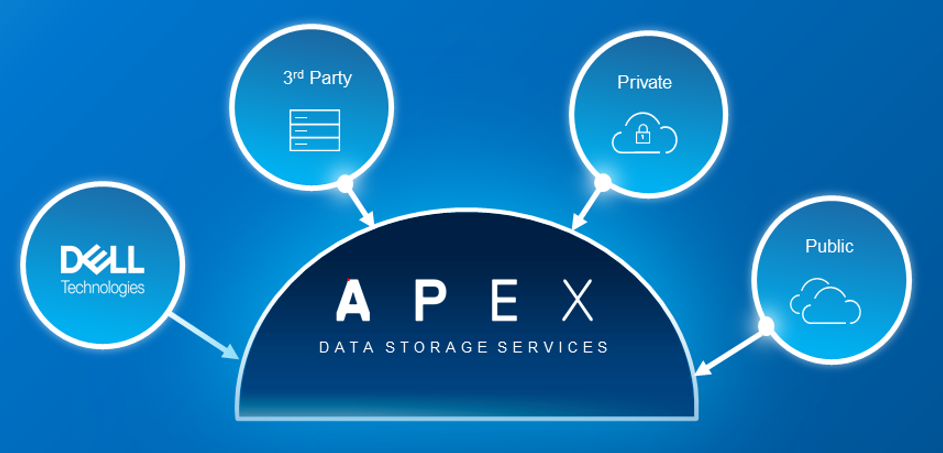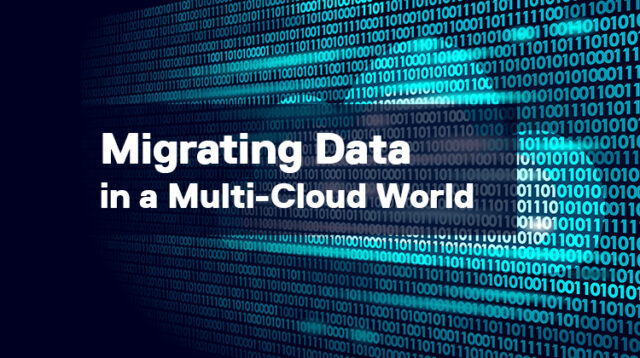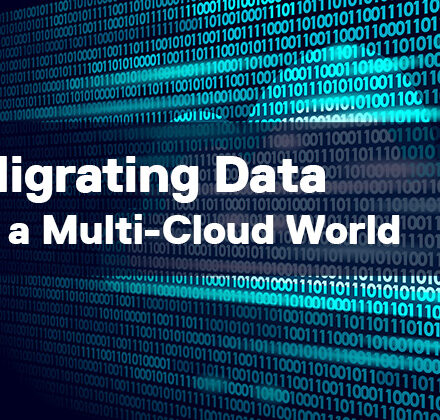The traditional approach to data migration can best be described as the simple movement of block, file, v2v, and object data from one device to another. Typically, this happens when upgrading from one storage device to a newer one. The process can be equated to moving from one apartment to a bigger, better one – You pack up, you move, you unpack.
Contemporary migrations are more like moving a business to a new campus. There are a lot of moving parts and changes, opportunities to reconfigure and update the environment, and many choices to be made to create the best version of the move. Placing data in the best modality to extract the greatest business value becomes more complex than simply an issue of storage.
The rapid expansion of gathered information from an escalating number of sources can drive great opportunities and present big challenges. A recent Forrester study, commissioned by Dell Technologies, reveals that 71% of senior decision-makers questioned said they are gathering data faster than they can analyze and use, and that 60% are battling data silos.1
Migration of fast-growing and dispersed data to its most useful format and location is a step in the right direction, but it can quickly become an overwhelming proposition for IT organizations with other priorities on their plate.
Approaching a contemporary migration, organizations must answer serious questions. What is the most efficient way to move data between traditional storage, cloud or private cloud? Can they securely aggregate data to multiple locations to drive desired purposes, each with a variety of security needs? How do they shift workloads to the most efficient modality in the best location?
Today, organizations need to move data to and from a variety of modalities to realize value. They often use multiple clouds and when migrating they may target a variety of destinations serving multiple purposes. As data sprawl further challenges a business, the specifics of migrations and the best tools to accomplish desired results become more complex to navigate. Dell Technologies has evolved our Data Migration Services to meet the challenge of moving data from where it sits today to where it can drive innovation.
The Trend Towards Repatriation
Cloud is a great solution for many purposes, but when predictability, performance, and security are crucial to driving workloads, on-premises storage may be the better option. For this reason, repatriation has become a bigger issue and new options that provide a cloud-like experience on-premises are gaining popularity. Dell Technologies APEX Data Storage Services is the newest in a portfolio of elastic, outcome-based IT services delivered so that customers only pay for what they use with the ability to scale up and down, delivered to the service level they need with on-premises infrastructure that is owned and maintained by Dell Technologies. Check out this blog A Radically Simplified Storage Experience – APEX Data Storage Services for more insights on our new as-a service offering.

Our most recent innovation is to streamline the migration process into a predictable, repeatable service that addresses data with a consistent feature set regardless of modality type. Dell Data Migration Services simplify the complex by having our experts plan, manage, execute and follow up on migrations.
Leveraging our Data Migration Services is an excellent way to get started with APEX and accelerate your migration time to value with confidence. We provide a convenient way to perform block, file migrations from Dell or third-party storage products, and from private, public and hybrid cloud, including when aggregating data from multiple sources. And these services can be used over time to aggregate more data to APEX Data Storage Services.
With Data Migration Services, our goal is to provide customers with greater control, security, and value through standardized processes in planning, execution, and knowledge transfer. Whether you are upgrading technology, changing platforms, or leveraging cloud, our experts use proven tools to streamline migrations and provide you a faster time to value. These services are available remotely or onsite.
To learn more about Dell Data Migration Services, contact your Dell Technologies representative and visit our website.
1 A January 2021 commissioned study, “Unveiling Data Challenges Afflicting Businesses Around the World,” conducted by Forrester Consulting on behalf of Dell Technologies. Base: 1,635 Director+ decision-makers responsible for data and data strategies in NA, EMEA, APJ, GC, or LATAM.


